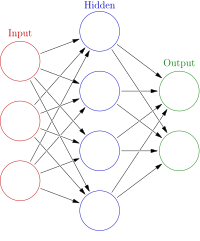
Bimodal language switching: New insights from signing and typing
Sign Up to like & getrecommendations! Published in 2017 at "Journal of Memory and Language"
DOI: 10.1016/j.jml.2016.11.002
Abstract: Abstract Language switching typically refers to unimodal switching between two spoken languages. In bimodal language switching, one language is produced vocally and the other language is produced manually (e.g., a sign language). We compared unimodal… read more here.
Keywords: language produced; language switching; new insights; language ... See more keywords

Voluntary language switching: When and why do bilinguals switch between their languages?
Sign Up to like & getrecommendations! Published in 2018 at "Journal of Memory and Language"
DOI: 10.1016/j.jml.2018.07.005
Abstract: Abstract Bilingual language switching has been studied extensively in cued picture naming paradigms, instructing bilinguals when to switch between languages. However, in daily life, bilinguals often switch freely, without external instruction. This study examined when… read more here.
Keywords: switch languages; bilinguals switch; language switching; switching bilinguals ... See more keywords

Earlier and more distributed neural networks for bilinguals than monolinguals during switching
Sign Up to like & getrecommendations! Published in 2017 at "Neuropsychologia"
DOI: 10.1016/j.neuropsychologia.2017.09.017
Abstract: Abstract The present study investigated processing differences between young adults who were English monolinguals or English‐French bilinguals on a task‐ and language‐switching paradigm. The mechanisms responsible for task switching and language switching were investigated using… read more here.
Keywords: distributed neural; task switching; language switching; language ... See more keywords

Language control mechanisms differ for native languages: Neuromagnetic evidence from trilingual language switching
Sign Up to like & getrecommendations! Published in 2017 at "Neuropsychologia"
DOI: 10.1016/j.neuropsychologia.2017.11.016
Abstract: ABSTRACT How does the brain process and control languages that are learned at a different age, when proficiency in all these languages is high? Early acquired strong languages are likely to have higher baseline activation… read more here.
Keywords: language control; native languages; language switching; control mechanisms ... See more keywords

When Language Switching is Cost-Free: The Effect of Preparation Time
Sign Up to like & getrecommendations! Published in 2022 at "Cognitive science"
DOI: 10.1111/cogs.13105
Abstract: Previous research has shown that language switching is costly, and that these costs are likely to persist even when speakers are given ample time to prepare. The aim of this study was to determine whether… read more here.
Keywords: time; preparation time; cost; language ... See more keywords

The influence of short-term language-switching training on the plasticity of the cognitive control mechanism in bilingual word production
Sign Up to like & getrecommendations! Published in 2018 at "Quarterly Journal of Experimental Psychology"
DOI: 10.1177/1747021817737520
Abstract: This study examined the effect of short-term language-switching training on the cognitive control mechanism in bilingual word production. In two experiments, two groups of relatively proficient but unbalanced Chinese–English bilinguals performed a cued picture-naming task,… read more here.
Keywords: cognitive control; switching training; control mechanism; language switching ... See more keywords

No evidence for a mixing benefit—A registered report of voluntary dialect switching
Sign Up to like & getrecommendations! Published in 2023 at "PLOS ONE"
DOI: 10.1371/journal.pone.0282086
Abstract: Previous language production research with bidialectals has provided evidence for similar language control processes as during bilingual language production. In the current study, we aimed to further investigate this claim by examining bidialectals with a… read more here.
Keywords: evidence mixing; language control; language; voluntary language ... See more keywords

Examining Language Switching and Cognitive Control Through the Adaptive Control Hypothesis
Sign Up to like & getrecommendations! Published in 2020 at "Frontiers in Psychology"
DOI: 10.3389/fpsyg.2020.01171
Abstract: Increasing evidence suggests that language switching is a distinct form of bilingual language control that engages cognitive control. The most relevant and widely discussed framework is the Adaptive Control Hypothesis. This theoretical framework identifies language… read more here.
Keywords: cognitive control; interactional contexts; control; language switching ... See more keywords

No Bilingual Benefits Despite Relations Between Language Switching and Task Switching
Sign Up to like & getrecommendations! Published in 2020 at "Frontiers in Psychology"
DOI: 10.3389/fpsyg.2020.01832
Abstract: Previous research has shown that bilingual children outperform monolinguals on tasks testing cognitive control. Bilinguals’ enhanced cognitive control is thought to be caused by the necessity to exert more language control in bilingual compared to… read more here.
Keywords: cognitive control; nonverbal switching; control; switching task ... See more keywords

Language switching may facilitate the processing of negative responses
Sign Up to like & getrecommendations! Published in 2022 at "Frontiers in Psychology"
DOI: 10.3389/fpsyg.2022.906154
Abstract: It has been proposed that processing sentential negation recruits the neural network of inhibitory control (de Vega et al., 2016; Beltrán et al., 2021). In addition, inhibition mechanisms also play a role in switching languages… read more here.
Keywords: may facilitate; language; language switching; negative responses ... See more keywords

Investigating the modulation of active preparation and passive dissipation on inhibitory control processes in the language switching paradigm
Sign Up to like & getrecommendations! Published in 2023 at "Frontiers in Psychology"
DOI: 10.3389/fpsyg.2023.1065268
Abstract: Introduction Previous language-switching studies have received scholastic attention and the observed switching cost patterns have provided empirical evidence for bilingual language control. However, results are inconsistent as the size of and (a)symmetry in switching costs… read more here.
Keywords: time; control; language; preparation ... See more keywords